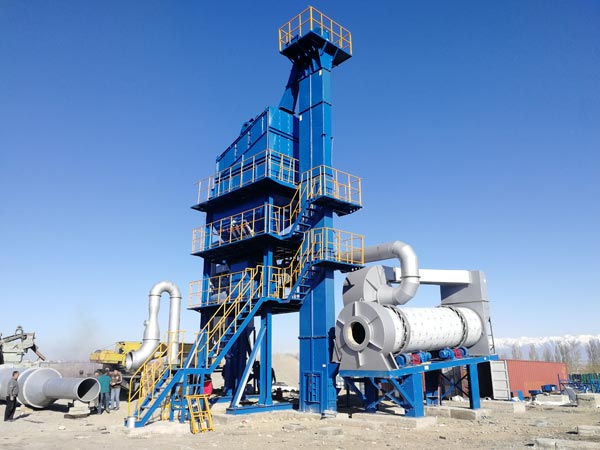


Learn the best practices for efficient asphalt production and paving for various clients.
Managing multiple asphalt paving projects at once isn’t easy. As a contractor, you face tight schedules, rising material costs, and the constant need to satisfy different clients at the same time. So, what’s the most efficient way to produce and pave asphalt without delays or extra expenses?
In this post, I’ll break down the most practical solution to meet asphalt demands from multiple clients efficiently. I’ll also explain how the right asphalt mixing plant and setup can change the way you run your business.
If you rely on outsourced asphalt supply, you’re often stuck waiting. Late deliveries or poor-quality mixes can hold up your project and damage your reputation. Even if you get materials on time, they may cool down before paving begins—especially if jobs are spread across different sites.
That’s why more contractors are rethinking their approach. Owning your asphalt production line gives you control, speed, and flexibility. But how do you make it efficient enough for multiple clients or sites?
When you need to produce asphalt continuously and transport it quickly, a mobile drum mix plant is one of the smartest investments. Unlike batch mix plants, which stop between cycles, asphalt drum mix plant can keep running. This means fewer delays and more output per hour.
Drum mix technology blends aggregate and bitumen in a single flow. No waiting between batches. You can deliver hot mix directly to multiple trucks or transfer it to a storage silo. That’s ideal when you’re paving for several clients on the same day.
A mobile plant can be relocated close to a cluster of projects. You reduce hauling distance and fuel costs. Jobs get done faster, and clients get fresh asphalt, every time. This flexibility also helps you schedule more jobs in one season.
Producing and paving efficiently isn’t just about the machine—it’s about how everything works together. Let’s look at the factors that really matter when serving multiple clients.
Place your plant close to your busiest projects. The shorter the distance, the faster the delivery. If your clients are in different cities or regions, consider relocating the plant between phases. A mobile unit makes this possible.
Choose a plant that can handle high daily output without breakdowns. For example, a 60–100 TPH (tons per hour) mobile drum mix plant is ideal for contractors handling medium to large paving jobs across multiple clients.
Clients expect smooth, durable asphalt. Make sure your plant includes precise temperature control and dust collection systems. A steady mix quality builds trust and helps you win repeat contracts.
The faster your team can install and start the plant, the sooner you begin production. Choose equipment that’s easy to assemble and comes with clear instructions. Some suppliers even offer on-site technical support.
With the right asphalt plant setup, you can serve multiple clients efficiently. You also gain the flexibility to take on urgent jobs or larger contracts. Better yet, your cost per ton drops when you produce your own mix. That means better margins and more competitive pricing.
Clients want reliability. If they know you control your own asphalt supply, they’ll trust your timelines more. That alone gives you a major edge in a competitive market.
Many contractors I’ve worked with in Indonesia saw a clear shift after switching to mobile asphalt plants. They stopped worrying about asphalt delays. Their crews became more productive. And they could serve more clients in less time.
One paving contractor in Surabaya mentioned that relocating their mobile drum plant cut transport time by 60%. That helped them deliver three separate paving jobs in a single day—without hiring more trucks or increasing labor.
